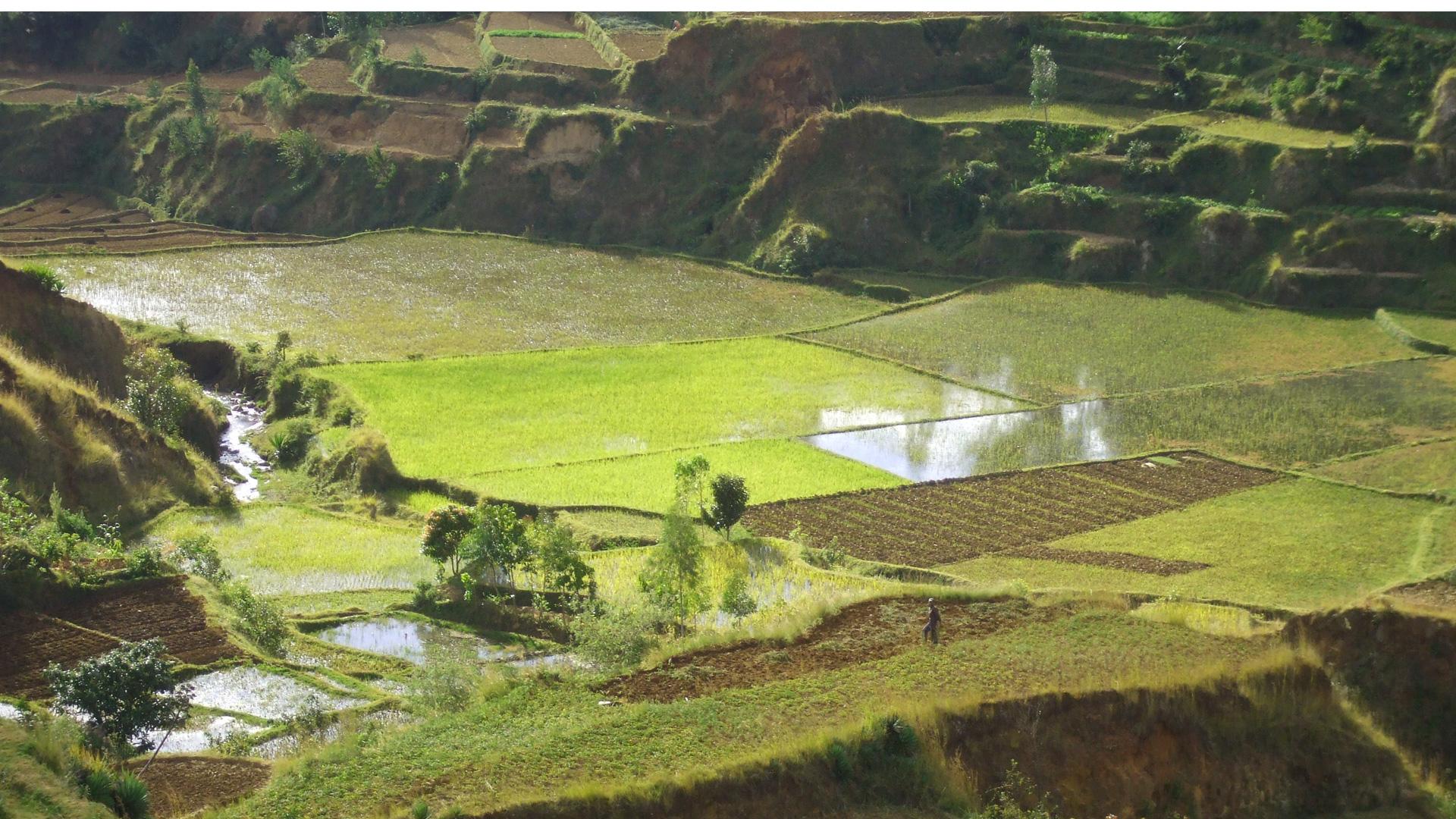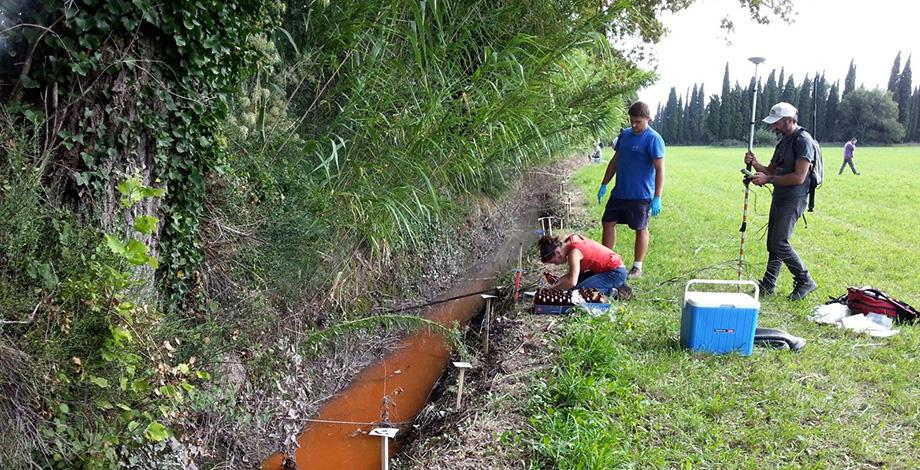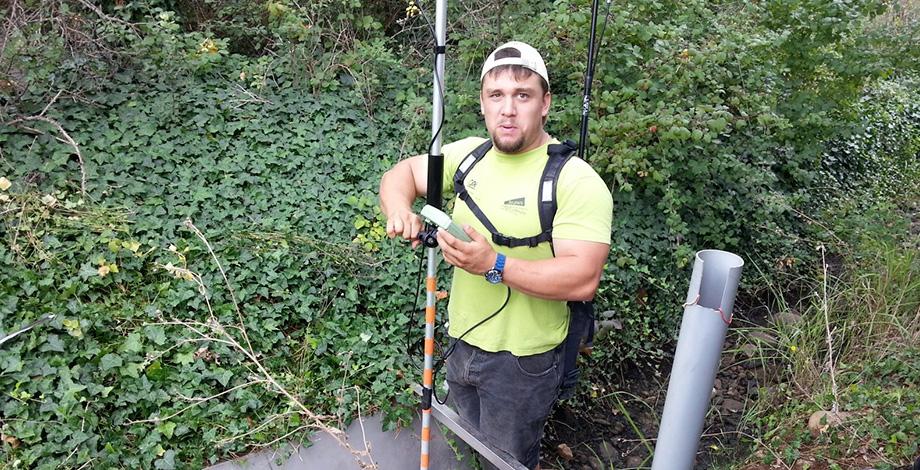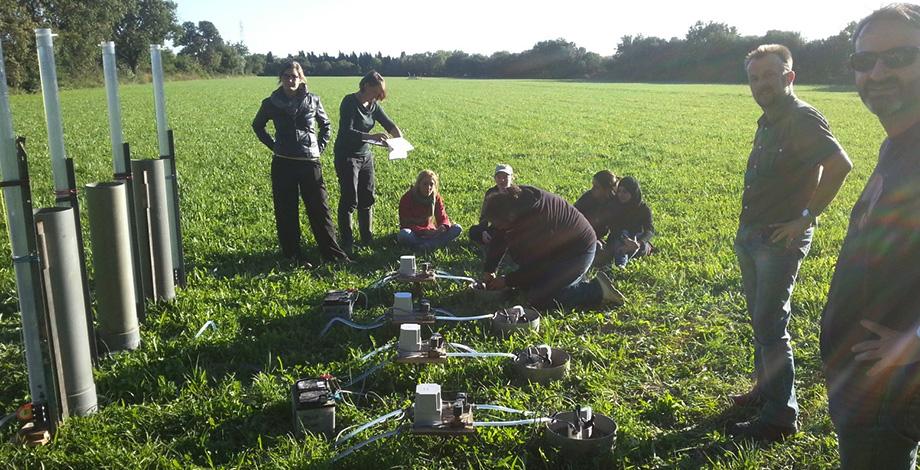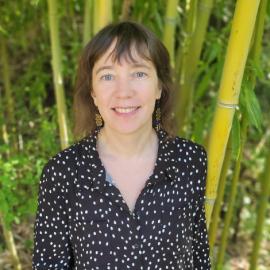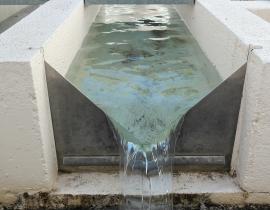Train scientists specialized in the water issues involved in agricultural production and the management of farmed landscapes.
|
What type of training ? |
une formation diplômante, sous statut étudiant |
|---|---|
|
For who ? |
étudiant titulaire d'un diplôme français, étudiant international |
|
Where ? |
l'Institut Agro Montpellier Domaine du Merle
|
Objective
The challenges of water resource management are becoming increasingly important around the world under the triple effect of population growth, rising living standards and increasing per capita demand. They are particularly critical in rural areas, which both produce and consume considerable water resources due to their size and the needs of agriculture (accounting for 70% of global water resource consumption).
Optimal water management in these areas, both quantitatively and qualitatively, is therefore essential, not only for the sustainable development of agricultural activities, but also for the development of other sectors (industrial, urban, etc.) in areas where there are or may be conflicts of use with agriculture. This is especially true in Mediterranean and tropical regions where water resources are scarce and irregular.
The programme, which involves teaching and research teams renowned for their work on these topics, enjoys a privileged environment within the Montpellier research platform, both from a scientific and operational point of view.
Themes
- water
- natural resources, environment, territories
-
Programme
Number of ECTS credits : 120 ECTS (60 ETCS per year)
Language of instruction : In French
Each year, the Water and Agriculture specialization of the "Water Sciences" M.Sc programme trains 15 to 20 specialized scientists (academics and professionals) on challenges, issues, and solutions at the interface of water and agriculture, water and plants:
- efficiency of agricultural water consumption
- design and management of farmed landscapes for the recovery of water quality
- reuse of non-conventional water in agriculture
- design and management of rainwater conservation systems
- water-food-energy nexus
- adaptation of water-agriculture relations in response to climate change
- phytoremediation of water quality, etc.
The main areas of expertise targeted by the programme are the quantitative management of green water (irrigation management and irrigation schemes for crop production, management of rainfed crop systems and farmed landscapes, rainwater conservation systems, exploitation and development of short-cycle resources) and water quality management in farmed catchment areas: monitoring and diagnosis, preservation and restoring water quality (catchment supply areas) design and implementation of agri-environmental and environmental management measures (buffer zones, etc.).
The syllabus is available on the M.Sc Water Sciences website.
COMPULSORY Internships of 2 to 4 months (M1) and 5 to 6 months (M2)
Some examples of internships:
- Landscape planning and protection of water resources, Chamber of Agriculture, Occitanie Region.
- Identification, definition and updating of monitoring indicators for the modernization of networks. Authorized Irrigation Association (Occitanie)
- Innovation project for precision irrigation, regional development corporation (South of France).
- Protection of water resources nitrates/phosphorus/pesticides (Management association / Pays de Loire)
- Studies of irrigation and fertigation systems on banana and pineapple plantations. Search for the improvement of drainage systems (multinational enterprise, Ghana)
- Analysis of the variability of crop yields and the impact of rainfall estimation data on agricultural yields. CIRAD/UMR Tetis (Montpellier)
- Hydrological and hydraulic study of irrigation canals in Cambodia (Mekong Delta), IRD Cambodia/UMR G-Eau
- Support the setting up of a territory development plan to understand and limit the risks of transfers of plant protection products (consulting firm, Montpellier)
- Modelling pesticide transfers on a banana plot in a tropical volcanic environment. Literature review, analysis of experimental databases, calibration and validation of a water-solute transfer model, INRAE, UMR Lisah (Montpellier)
-
Calendar
In the first year of the program (M1), the academic semesters run from September to April, in the second year (M2) from September to January/February.
-
Admissions
Prerequisites: basic knowledge of the water cycle, water-soil-plant-atmosphere system, farming systems, statistics and physics, English, and proficiency in French (level B2).
- Admission to the first year (M1) of the programme: equivalent of bachelor’s level in the fields of earth sciences, water sciences, biology, chemistry. Prerequisites: fluency in French (level B2); solid foundations in science and disciplinary and methodological approaches essential for the training programme.
- Admission to the second year (M2) of the programme: validated M1 level, from an engineering school or university, in the fields of earth sciences, water sciences, biology, chemistry. Priority is given to students who have successfully completed the first year (M1) of the M.Sc Water Sciences program with the specialization, “Water and Agriculture”, and engineering students from supporting institutions.
-
Careers
Research and innovation careers
- R & D engineering, project manager in specialized technical institutes in France and abroad, continuing with a PhD program (close link with the GAIA and ABIES Doctoral Schools) in research units (in particular those belonging to the Montpellier-based water cluster focused on the Mediterranean and the south) or in private companies (company-laboratory CIFRE contracts).
- At the end of the PhD program, there are research opportunities (research engineer, research associate or lecturer in national and international agronomic and environmental research institutes), consulting for companies (agronomy, environment, water supply, etc.) or international organizations (donors, international research centres, FAO).
Operations oriented careers
- Research officer (water resources, irrigation, agricultural pollution, etc.), project manager/team leader monitoring agricultural practices, territorial coordinator (in watershed management associations, chamber of agriculture, cooperatives), irrigation network manager.
Director of studies
Partners
- Coordinators of the specialization: AgroParisTech, Montpellier SupAgro, University of Montpellier
- Programme director: Flavie CERNESSON, AgroParisTech, flavie.cernesson@agroparistech.fr
Associated research units:
- UMR G-Eau, Water management, actors, uses
- UMR LISAH, Laboratory for the study of interactions between soil, agrosystems and water systems
- UMR TETIS, Territories, environment, remote sensing and spatial information
Place
L'Institut Agro Montpellier
Campus de La Gaillarde
2 place Pierre Viala
Montpellier
Registration
Key features
- The program involves two fields in which Montpellier’s university hub excels: water and agronomy.
- Students benefit from a rich network via the three institutions involved: Montpellier SupAgro, AgroParisTech, and the University of Montpellier.
- A network of socio-economic and university partners unique in France is ready to address training issues.
- There is a diversified teaching team deeply invested in the academic training and career development of future graduates.
- An international outlook (in terms of both incoming students and career opportunities).
Fees
Students from France and EU member countries
Each year: €243 + €100 Contribution Vie Etudiante et de Campus (CVEC) administrative fee
Students from other countries
Each year: €243 (partial fee waiver) + €100 Contribution Vie Etudiante et de Campus (CVEC) administrative fee
Contacts
-
-
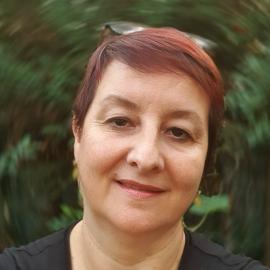
Christelle CARTON-FRELAT
Programme assistant
- Service Scolarité - Direction des services d'appui
- Institut des régions chaudes (IRC)
Email : christelle.carton-frelat@supagro.fr
Phone : +33 (0)4 67 61 70 31
Phone : +33 (0)4 67 61 70 31
Website
L'Institut Agro Montpellier
2 place Pierre Viala
34060 Montpellier - France
Tél. : +33 (0)4 99 61 22 00 Tél. : +33 (0)4 99 61 22 00
Fax : +33 (0)4 99 61 29 00
contact@supagro.fr

